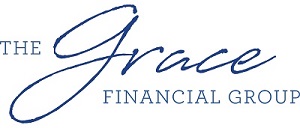Buzz Words on Wall Street
Blockchain
A blockchain is a digital, public ledger that records online transactions. A blockchain is similar to a bank's ledger, but open and accessible to everyone who uses the online currency or cryptocurrency.
When you swipe your credit card at a store, or order online, the charge has to pass through a financial institution like a bank that  confirms the transaction, debits the cardholder's account, and relays the charge to the retailer to complete the sale. This can be expensive – banks charge a fee for the service – and insecure for users, as recent hacks at point-of-sale systems have shown. There is also potential for credit card fraud.
confirms the transaction, debits the cardholder's account, and relays the charge to the retailer to complete the sale. This can be expensive – banks charge a fee for the service – and insecure for users, as recent hacks at point-of-sale systems have shown. There is also potential for credit card fraud.
The blockchain fixes these issues. A blockchain is made up of a series of "blocks.” The blockchain software records each transaction in a block without the aid of a third party like a bank or payment processor. The blockchain algorithm automatically encrypts and authenticates the transaction, which is immediately visible to all users, minimizing the possibility of fraud. The terms of the transaction do not include any personal identifying information.
Emerging Markets
An emerging market economy is defined as an economy with low to middle per capita income. EMEs are characterized as moving from a closed economy to an open market economy. They are increasing levels of transparency and creating a stable local currency. They have begun to open up their markets and “emerge” onto the global scene. They are considered to be fast-growing economies. They are typically receiving aid and guidance from large donor countries and world organizations such as the World Bank and International Monetary Fund. Investing in these countries adds additional risk and the possibly of a higher return.
Exchange-Traded Fund (ETF)
Exchange-traded funds are mutual funds that trade like stocks (i.e. they are priced continually throughout the day).
They are geared toward institutional traders and active traders. Trading throughout the day allows a day-trader to watch the market, buy at a certain price, and then sell the shares at a higher point during the day, taking advantage of the daily market volatility. Every trade costs a commission, which eats into the profits, especially for the small trader. Positives are low costs within the EFT and the portfolios are flexible and tax efficient.
Fiduciary
A fiduciary is a person tasked with overseeing someone's assets. In the U.S., fiduciaries are bound by law to apply the highest standard of care to their customers, which is called a fiduciary duty. The financial advisor must work to the best of his or her ability to benefit the client and bring about a satisfactory result or capable stewardship of the client's assets. Making sound investments that maximize the beneficiary's returns instead of the financial planner's profits is the rule.
Junk Bonds
When you buy a bond, you are loaning money to a corporation, municipality, hospital, etc. These entities have credit ratings just as people do. Every entity receives a credit rating from a financial services company like Standard & Poor. Entities that have an investment-grade score are healthy and able to meet their payment obligations. Junk bonds have low credit ratings, meaning there's a higher-level risk of default or inability to pay the monthly interest payments to their bondholders. These bonds offer a substantially higher yield and, therefore, are attractive to the risk tolerant investor.
Penny Stock
The term penny stock generally refers to a security issued by a very small company that trades at less than $ 5.00 a share. To protect yourself, trade stocks that are listed on the American Stock Exchange (AMEX) or Nasdaq as these exchanges are rigorously regulated. These exchanges are not protecting you from market volatility or even your investment going to zero. However, other risks have been screened out. Also, entering a stop loss order at the time of purchase offers downside protection. Penny stocks are considered speculative.

